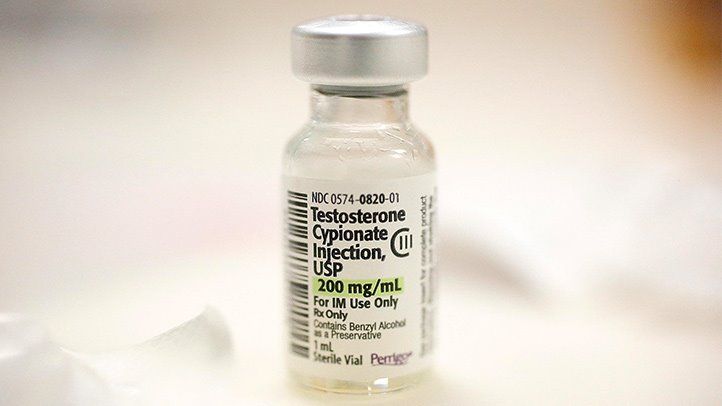Just like women, men also experience numerous symptoms and changes in their 40s. Most of these symptoms are generally related to hormonal changes. That’s why this condition in men is commonly referred to as “Male Menopause.” However, the hormonal change in men happens gradually, unlike a dramatic shift that women experience during their menopause.
Nevertheless, the concept of male menopause is still alien to many. The reason being is menopause is directly associated with the “end of the menstrual cycle.” This leads to the question- How can men have menopause?
Well, advancing medical science can never cease to amaze the functioning of the human body. While menopause is a natural occurrence in females, studies have shown that approximately 2.1% of males are affected by this condition. Moreover, aging is reportedly the primary cause of male menopause.
Seems fascinating? Let’s learn about the same in detail!
What is Male Menopause?
Medically, this condition is defined as the change in male hormone level due to aging. The symptoms generally include testosterone deficiency. However, some researchers often associate this symptom to conditions, namely androgen decline in the aging male (ACAM) and late-onset hypogonadism.
Lower testosterone levels often cause mental and physical energy changes, difficulty maintaining muscle mass, and irregularity in evolutionary features.
This condition differs from female “change” in numerous ways. The most basic difference is that not all men suffer from this condition, unlike women. Also, it does not cause the shutdown of male reproductive organs. But, sexual complications such as low sex drive or difficulty sustaining erections may arise due to a drop in hormonal level.
That is why it is recommended to consult doctors to diagnose your condition. You can begin the process by finding the online testosterone specialist in your area and book an appointment. During the initial consultation, the specialist can help you with lifestyle modifications and dietary changes. And later on, they can provide you the necessary treatment.
Is Andropause And Male Menopause Same?
Yes, andropause and male menopause are one and the same thing. People often mistook these names as two different conditions. However, these are just synonyms. The symptoms, causes, and treatment of both conditions are the same.
What Are Its Symptoms?
This condition can cause physical, psychological, and sexual problems. These issues can get worse with aging. The common signs of andropause are:
- Low energy
- Depression or sadness
- Insomnia or difficulty sleeping
- Lowered self-confidence
- Difficulty concentrating
- Decreased motivation
- Moodiness
- Erectile dysfunction
- Gynecomastia, or development of breasts
- Increased body fat
- Reduced muscle mass and feelings of physical weakness
- Infertility
- Decreased bone density
- Reduced libido
Some symptoms of menopause are the same for men and women, such as:
- Hot flashes
- Excessive sweating
- Dry, thin skin
- Irritability
In rare cases, this condition can cause osteoporosis. That means bones become weak and brittle. Although it is rare, visiting a doctor would be a wise step to take.

What Are Its Causes?
According to studies, after the age of 30, testosterone levels start to fall gradually by 1% every year. That’s the reason why not all men experience this condition. But, change in male hormones can also be caused by underlying health conditions, namely heart disease, type 2 diabetes, high blood pressure, or obesity.
Other causes of lower testosterone are:
- Alcohol consumption,
- Smoking,
- Sleep deprivation,
- Lack of exercise,
- Anxiety, and
- Stress.
Not to forget, sometimes, the psychological issue “Mid-life” crisis can also trigger andropause. Whatever the cause may be, you must get the proper treatment to improve your health.
Diagnosis Of The Condition
The doctor will take your blood sample to check the testosterone level. If the level is less than 300 nanograms per deciliter (ng/dL), it means you are experiencing menopause. Unless this condition is causing any significant disruption in your life, it is relatively easy to manage the symptoms without treatment.
All you need to do is visit your doctor regularly and follow a healthy lifestyle. For instance,
- Get regular exercise,
- Eat healthy and nutritious food,
- Sleep well, and
- Worry less.
Remember that the symptoms affect every person differently. If you are already suffering from a severe condition such as diabetes or cardiovascular disease, managing a drop in hormonal level can be a daunting task. You first have to control your blood glucose level to tame the symptoms.
To diagnose your condition, the doctor will perform a few tests- blood tests, CT scan, MRI scan, and any other detailed check-up on your symptoms such as fatigue or erectile dysfunction. Suppose you have depression, anxiety, or any other mental illness. In that case, they may as well recommend you to a psychologist or psychiatrist.
Some men are shy or intimidated to share information about their health. However, you need to understand that it does no good. Instead, not-disclosing any crucial information adversely affects your health. Therefore, It would also help if you talk about your symptoms with your doctor without any kind of hesitation.
Treatment Options Available
As mentioned above, if the symptoms are not affecting your everyday life, you can follow a healthy lifestyle to improve your condition. But, if your condition is severe, the doctor may recommend testosterone replacement therapy (TRT). It can help improve your energy level, sex drive, bone density, muscle mass, and cognitive function.
Depending upon your situation, they might recommend any of the following therapies to you:
- Clomiphene Citrate (Clomid)
- Human Chorionic Gonadotropin (HCG)
- Nandrolone Decanoate
Apart from these, there are a few at-home treatments. Transdermal creams and gels are proven to be an effective method and preferred by most men. Doctors may recommend using testosterone injections. They can teach you how to use it so that you can easily do it yourself in the comfort and privacy of your home. Nevertheless, make sure to regularly discuss your progress or health with the doctor.
To Sum It All Up!
The decline in testosterone is a normal part of aging. Oftentimes, the symptoms are manageable and do not require any treatment. Nevertheless, it is wise to consult a specialist to get knowledge about your condition and seek the right treatment. Seeking therapy can help keep your body healthy and energetic- ensuring you enjoy your 40s and beyond in wholesome.
